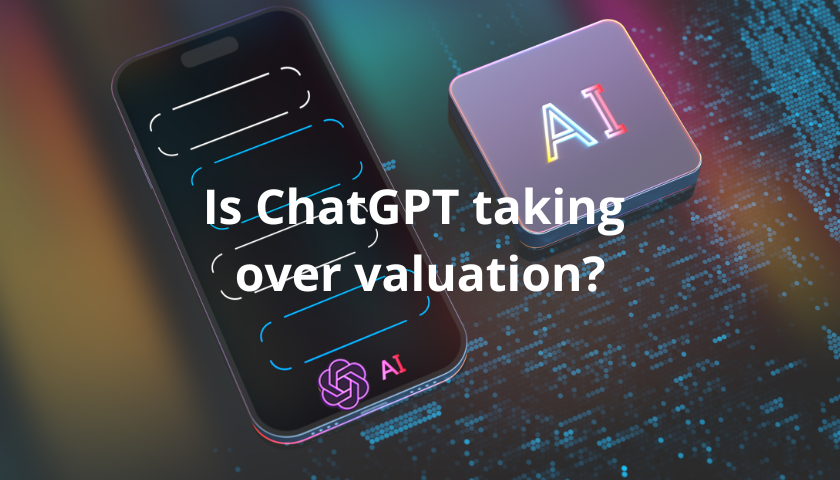
Is ChatGPT taking over valuation?
BACKGROUND
OpenAI Inc. developed ChatGPT and launched the chatbot in November 2022. Currently, OpenAI Inc. offers ChatGPT in two options: a) free plan; b) GhatGPT Plus for $20/month. The paid plan provides faster response, priority access to new features and advanced data analysis.
Users can integrate ChatGPT functionality into other software applications through API for a fee. Another ChatGPT functionality called DALL·E can generate and edit images from a provided description.
Use of ChatGPT and other similar AI tools sparked concerns about intellectual property rights as well as AI’s impact on the job market. Several well-known authors have recently filed a lawsuit again OpenAI, claiming bot’s infringement on copyrights resulting from AI’s training on their work products.
Currently, approximately 49% of Open AI is owned by Microsoft, following reported $ 10 billion investment in January 2023. Another 49 % is said to be owned by Andreessen Horowitz, Calif based VC firm. Recent discussions about potential share sale were based on company’s valuation of between $ 80 and $ 90 billion.
The purpose of this publication is to assess ChatGPT’s ability to access certain valuation information, answer specific valuation questions. We specifically focused on valuation topics related to financial reporting. We used the free version of ChatGPT to generate answers for this publication.
Analysis
Our review of ChatGPT capabilities was performed by asking specific questions and analyzing provided answers. Our analysis of the answers was focused on their precision, accuracy and overall relevance. We divided our question in three categories:
- Access to publication, guidance, other sources of valuation knowledge
- General valuation knowledge and definitions
- Practical questions, fact patterns
Questions asked, ChatGPT provided answers and proposed corrections are provided in Appendix A, Questions, Answers, Corrections.
Overall, we noted that ChatGPT provides accurate answers to some practical questions, e.g., calculation of future value with continuous reinvestment. ChatGPT was able to explain the relations between weighted average cost of capital (WACC), IRR and the purchase price. However, in one question involving determination of tax amortization benefit, ChatGPT provided incorrect answer.
We noted ChatGPT lack of ability to provide succinct and accurate description of specific valuation concepts such as description of the Backsolve method. However, the bot was not able to provide accurate formula to determine fair value of cash-or-nothing call option.
We noted ChatGPT is unable to access open resources such as valuation guide published the Appraisal Foundation, valuation standard published by AICPA and guides published by Big Four accounting firms.
It is important to note that substantial effort required to work with the bot involves figuring out what questions to ask. A question should contain all relevant inputs required for the accurate answer. Our experience of working with ChatGPT is that it will not assess the reasonableness of one’s question but rather will do its best to generate the answer given the inputs provided by the user.
Conclusions
Overall, out of 21 valuation questions asked, the bot correctly answered 6 of them or 29%. We believe that accuracy and precision of bot provided answers are as such that a valuation specialist should not rely on the answers without performing additional research. Having said that, answers provided to many questions gave a general background which is relevant and appropriate.
Since the launch of GhatGPT in February 2023, some companies announced plans to create their version of ChatGPT. We will see if any version will be created to handle valuation and other specialized accounting and finance questions.
For other publications relevant to you and your business refer to https://finacco.org/insights/ .